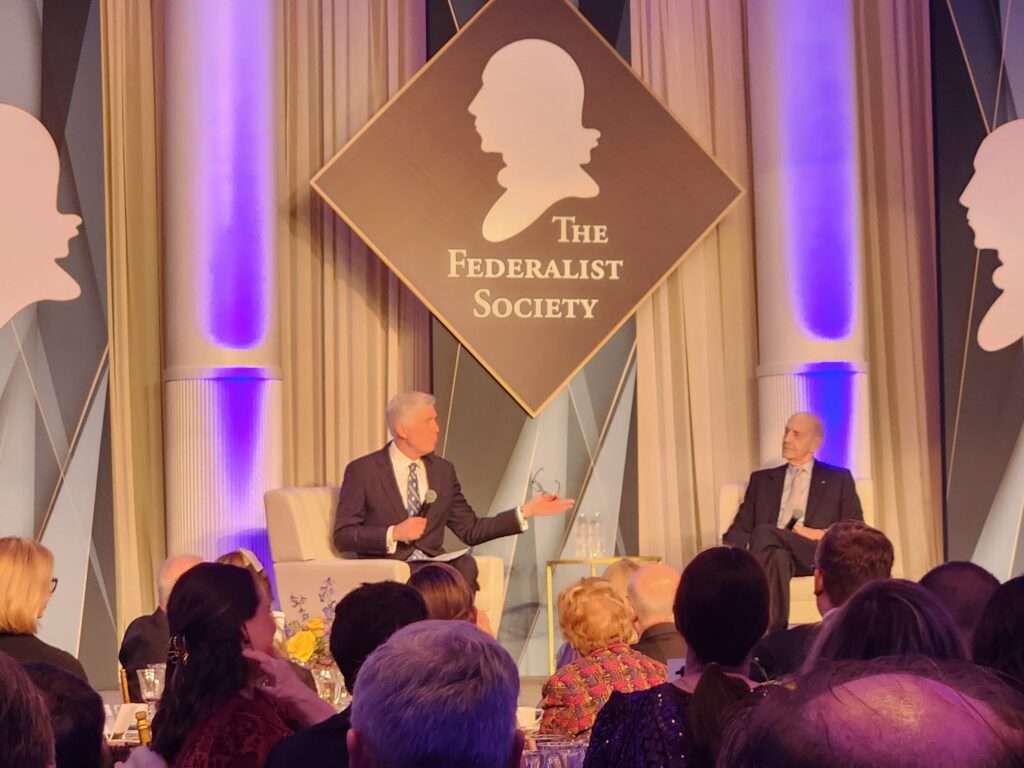
On Wednesday, the Washington Monthly had its regular weekly all-staff Zoom meeting. It felt like the citizens of a small town gathering in the square after a night of aerial bombing. People were disoriented, their nerves rattled, scanning the wreckage in disbelief. I began the meeting by saying I wouldn’t minimize how “very, very, very bad” the situation is. But I also noted that the most important lesson I’ve learned in my life—which, at 65, includes living through plenty of miserable election returns and a generous share of personal losses—is that devastating events open up opportunities. That’s not happy talk. It’s reality. But it’s hard to see in the moment.
The American people have given Donald Trump ultimate power. They’re going to get the Trump agenda, good and hard. There’s not a whole lot anybody can do to stop it. That’s horrifying to contemplate. It will be painful to go through. It’s also where the opportunity will be.
There’s a robust debate underway—in homes and offices, in the press, and on social media–about why Trump and his MAGA allies did so well and Kamala Harris and her party did so poorly. Everyone has a theory. Were the Democrats too woke or insufficiently progressive? Would it have made a big difference if Joe Biden had declined to run earlier? Was any Democratic nominee doomed, given inflation, or did Biden and Harris have a good story they failed to tell about their administration’s aggressive fight against the monopolized industries that are the root cause of higher prices?
These questions will be debated as more and better data comes in about how different parts of the electorate voted and why they voted that way. We’ll add our two cents to those discussions to provide some of the radical candor the Democratic Party and the broader center-left need to hear.
But while accurately diagnosing the problem is vital, figuring out what political and policy ideas will best address those problems is also essential. Unfortunately, fewer and fewer media outlets today even try.
Not so at the Washington Monthly. We’re all about scouting over the horizon for new ideas that can solve the country’s most pressing problems.
That might sound naïve given the lock that Trump and his movement are about to have on the executive branch, the Senate, possibly the House, and the Supreme Court. But here’s the thing. When parties get that much power, they get cocky. They make moves that horrify the same public that elected them. That was the fate of George W. Bush in 2005 when he tried to privatize Social Security. It was what happened to Donald Trump when he botched the government’s response to the pandemic.
Trump 2.0 is likely to make America worse in a wide range of areas: immigration, taxes, energy, education, trade, healthcare, public health, etc. A principled opposition needs well-thought-out policy ideas and political strategies at the ready to take advantage of his mistakes and fix whatever he breaks.
In the dark winter after Trump won the 2016 election, we offered three big ideas for what the Democrats should do. Anne Kim counseled for a legislative strategy of “co-opposition” whereby party leaders in Congress husband their political capital by letting their members work with the GOP majority on a wide variety of legislation but enforce unified opposition when it most matters—a strategy that helped the Dems retake the House in 2018. Phil Keisling made the case that Democrats should put vote by mail at the center of their electoral strategy, and when they did so (prodded by the pandemic) in 2020, it arguably won them the election. And Barry Lynn argued that Democrats should make antimonopoly and the freedom it promised the core of its economic strategy, an idea congressional leaders soon blessed and Joe Biden implemented as president.
So, over the next few weeks and months, you will read a lot about new political and policy ideas in these pages.
It’s okay to mourn what was lost on Election Day. It’s critical to fight the mudslide of bad and mendacious ideas about to roll over the nation. But none of that matters without a vision for a better America and specific, well-conceived ideas to bring it about.
The truth is that there aren’t many other magazines that put policy at the center of their mission. Hell, there aren’t even many think tanks generating common-sense liberal ideas to advance upward mobility, ease income inequality, and make government work.
I told my team on Wednesday that it felt a little weird for me to be talking so optimistically at this very dark moment, and it’s not like I don’t get the gravity of the situation. However, with tragedy comes opportunity, and the role of this magazine is to get the American people ready with ideas they can use when the opportunity arises.
Because you’re reading this, I presume you agree and maybe want to be part of that effort. You can help by sending our stories to friends, family, and anyone in your network. You can also support us financially. We’re a nonprofit and depend on the support of donors like you. We need you to be a part of this. Now. You can donate to the Washington Monthly here. Give $50 or more, and we’ll send you a print subscription to the magazine for free. It’ll help us to keep going forward at this perilous time.
Thank you.
The post After Election Day, Fight Back with Ideas appeared first on Washington Monthly.


 1 week ago
1
1 week ago
1 









 Bengali (Bangladesh) ·
Bengali (Bangladesh) ·  English (United States) ·
English (United States) ·